The digital revolution is currently transforming the paradigm of companies and industries while new technologies help to optimize processes that used to take a lot of time and money to perform and still were insufficient to give customers everything they are looking for to leave them satisfied.
Today, information is highly valued, and whoever manages it best is the one who leads the market by being at the forefront.
Technology is revolutionizing the pharmaceutical sector with digital innovations that drive new ways of interacting with health personnel and patients.
Implementing technology solutions applied to product design, manufacturing, delivery, and customer experience makes companies in all industries bet on digital transformation.
The pharmaceutical industry implementing emerging technologies is an example of Pharma 4.0.
The term pharma 4.0 belongs to the principles of the technological revolution of Industry 4.0, better known as the Fourth Industrial Revolution.
The digital tools that integrate this phenomenon include advanced data analytics such as Big Data, the Internet of Things, and artificial intelligence.
The pharma 4.0 concept designates the digital transformation of the pharmaceutical sector
It seeks to redesign the industry's business model to insert improvements in processes and make them more efficient.
The goal is to introduce improvements that benefit both pharmaceutical companies and the patients/customers linked to them.
Pharmaceuticals and medical devices are products and services that influence the health of society. These new technologies offer growth opportunities to improve their health and quality of life.
In a study conducted by Accenture with Top Voice in the Pharma sector, the key to providing greater operational efficiency and personalizing experiences is, for 90% of the executives, the innovation of technologies that apply artificial intelligence..
Most pharmaceutical experts believe that digital technology is essential to develop the current activity of the sector while incorporating the various tools available and taking the trouble to learn to manage them is a valid option if progress is requested.
Pharma 4.0 is about improvements in the four fields of business activity: human resources, processes, information systems, and culture.
Human resources
The pharma 4.0 automation systems in the production line allow for achieving more efficient results in the tasks, adding more precision and autonomy than through human labor.
It's challenging for the human resources area because it re-signifies the hiring schemes since it requires recruiting talents specialized in handling these technologies.
Processes
Improvement of processes allows optimal production to take it to a higher efficiency with the notable reduction of errors.
Because of that, optimization depends on the correct integration of these systems and the results generated by each process.
There may be resistance to implementing automation in companies with paper-based manual processes. But with the rise of digital tools, these changes are necessary to reduce physical storage space, allocate all information to the cloud, and streamline the search for data.
Information systems
Automation systems optimize all processes and also have traceability systems and real-time monitoring throughout the supply chain.
Intelligent and automated systems can work with greater autonomy and precision and reduce the margin of human error in repetitive tasks.
The idea is to distribute all the data collected inside and outside the plant and create predictive models based on Machine Learning, bringing maximum security to the entire process.
Culture
Pharma 4.0 implies a digital transformation of the physical processes to generate change in the corporate culture, which expands to all areas of the organization.
The gradual adoption of new technologies is part of the constant quest of business managers to reinvent their business model and make it more profitable for people's experience through technological solutions.
Pharma 4.0 is becoming involved in all layers of pharmaceutical production to offer a horizon full of possibilities: added value, quality control, stock optimization, securitization, intelligent operations, connectivity, efficiency, and speed.
This methodology improves the supply capacities and qualities of finished products. Also, it allows us to accompany our growth as a civilization with greater availability of better medicines.
Advantages of Pharma 4.0
Personalized care:
Algorithms and the use of Big Data make it possible to have remote monitoring and access to shared medical histories.
With sensors and digital services, patients have personalized care and treatment 24/7.
In this way, biomedical devices add value to the pharmaceutical industry. That means offering quality medicines that meet patients' needs and information that helps to improve people's experience.
Information management focused on customers and prospects:
Data integration can generate better results because all areas will know what they need and have more alternatives to offer them in an emergency.
Pharmaceutical manufacturers have access to a wealth of data, allowing them to create unique molecular profiles of their customers and provide personalized care.
It allows marketing teams to develop relevant strategies to understand the behaviors and needs of potential patients, which will help to have a more accurate record of the drugs to be delivered to suppliers, avoiding stock build-up with unmarketed products.
Automated processes to reduce costs and execution time:
The pharmacy industry evolves and innovates by producing new drugs based on artificial intelligence data.
Cloud-based tools have gained significant relevance in recent years. This tool saves paper and manual labor and facilitates the storage of a large amount of data more securely against information theft, it is necessary to secure the databases with strong passwords and remember to change.
Technology is revolutionizing the pharmaceutical sector with constant innovations
Pharma 4.0, as its name suggests, is a tool of the Fourth Industrial Revolution that has been the center of attention in business. It transforms pharmaceutical personnel's work, making technologies add value to their activity.
This revolution embraces new technologies such as robotics, analytics, artificial intelligence, cognitive technologies, nanotechnology, and the Internet of Things (IoT).
Organizations must identify the technologies that best meet their needs to invest in them. If companies do not understand the changes and opportunities brought by Industry 4.0, they risk losing market share.
Sigue actualizado e informado leyendo nuestros articlesand participating in our networks.
